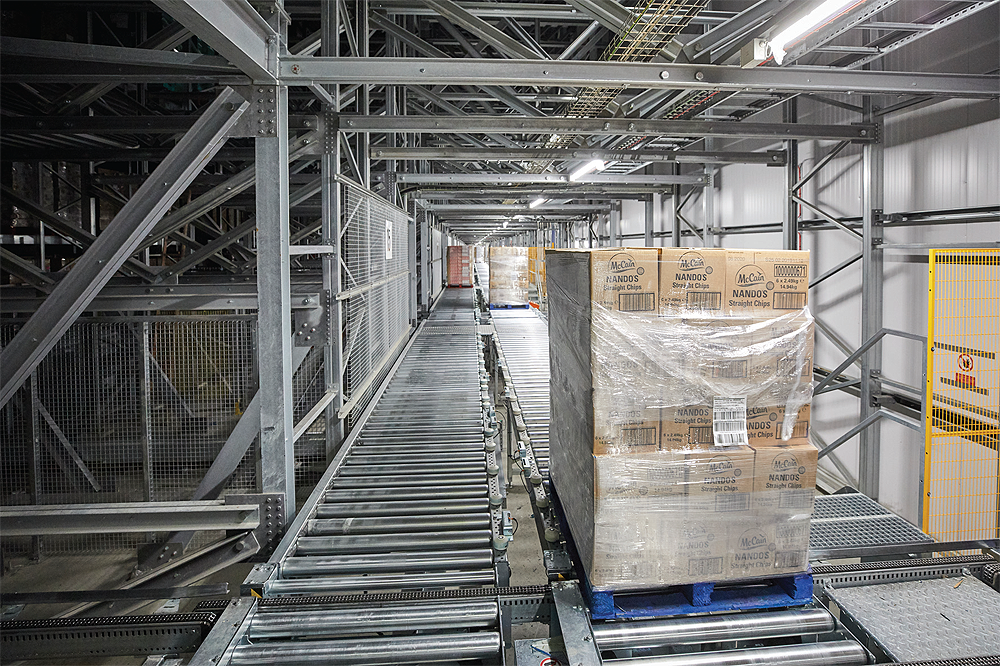
Cold Chain Federation
Together as one
Having undergone a rebrand in June this year, Cold Chain Federation remains the most authoritative voice in the cold chain industry, growing in membership figures and launching more impactful initiatives
Previously featured in our magazine under the name of Food Storage & Distribution Federation, earlier in 2019, what was known as FSDF took the bold step of rebranding to adopt its new identity – that of Cold Chain Federation. Discussing the past 12 months for the organisation, is its CEO, Shane Brennan.
“The main reason behind the change was to embody a name that more specifically related to who we are – namely, the voice of the temperature-controlled supply chain,” Shane begins. “Operating in the cold chain brings specific management, staffing, and regulatory changes, and that is what we are here to help with. It was also part of a drive to modernise how we look and how we communicate.”
Taking up its new name was included in Cold Chain Federation’s new strategy that gave impetus to the ongoing growth of membership figures and the launch of several new initiatives. Shane comments: “2018 was our best year in terms of welcoming new members to the organisation and this year has continued the positive trend of us attracting new businesses. Generally speaking, the rebrand has helped us significantly to reengage with the industry and that includes having some of our existing members get more and more involved in our activities.”
Energy efficiency initiative
He goes on to highlight some of the changes that have occurred in the cold chain industry and the noteworthy challenges Cold Chain Federation has encountered as of late. “There has been a lot of consolidation happening, with major acquisitions leading to new investment coming into the industry. In my opinion, we can expect more of the same in the months and years ahead, which should create further opportunities for the different players in cold chain.
“As regards the more pressing issues we need to attend to, I have spent a lot of time talking to the Government about the Brexit preparations that have to be made, because our members will be on the front line of dealing with the consequences if there is no deal,” Shane adds. “We realise that the red tape increase will be exponential and the potential for disruption, at least in the short term, will be significant. All we can do is share the information we have obtained with our members and do our best to get ready.”
During our conversation last year, Shane could not stress enough how central a topic climate change and new environmental demands are for Cold Chain Federation. Twelve months on, he is pleased to share that the body’s Climate Change Agreement has continued to yield positive results. “Dedicated to stimulating our members to introduce energy efficiency improvements, which then lead to tax benefits for them, it is a major success story and we are on track not only to meet, but also beat our targets,” he enthuses.
“The best innovations I have seen in the past year concern effective and continuous auditing of energy use linked to intervention. For example, weekly meetings take place to discuss energy consumption, identify spikes, and understand why they occur. In terms of technology, the most impressive and smart investments are in high-speed or air door solutions and LED lighting,” Shane continues.
Encouraging collaboration
Pointing out the greatest challenge to achieving even more significant carbon footprint reduction, he cites the little collaboration that is in place between separate entities within the chain. “Most businesses make individual efforts to cut their impact. In contrast, our mission is to promote more joint activities. We would like them to have shared objectives and share the data they have collected for the greater good of the entire industry.”
Another field in which Cold Chain Federation has been active, is fighting food waste. Shane details the company’s involvement: “We have been supporting the work of both Company Shop and FareShare who provide a way to redistribute food that is rejected either at manufacture or in retail. Company Shop has a model whereby it can sell it on through its retail outlets, while FareShare is a charity providing meals to those who need them most. Our role as a logistics specialist comes where the key challenge has to be overcome – getting the food from where it is not needed to where it can be used.”
Consolidating its rebrand, achieving more growth, and delivering a programme of events and activities that cement its position as a vital voice for the industry, are the immediate goals in front of Cold Chain Federation, that it will be pursuing in the coming year. From a longer-term perspective, however, the organisation has now taken it upon itself to set up a new Climate Change Agreement that will take it through the next decade and beyond. “Our current climate change scheme will end in 2023, so one of our main priorities is to prepare another one that follows the same principles. It has to be said, though, that in a world where the ambition is to achieve net zero carbon footprint by 2050, the targets that 39are likely to be set, will be significantly higher than anything that has gone before. Meeting them will be far from easy, so we are hoping to see as much collaboration across the chain as possible, in order to succeed,” Shane concludes.